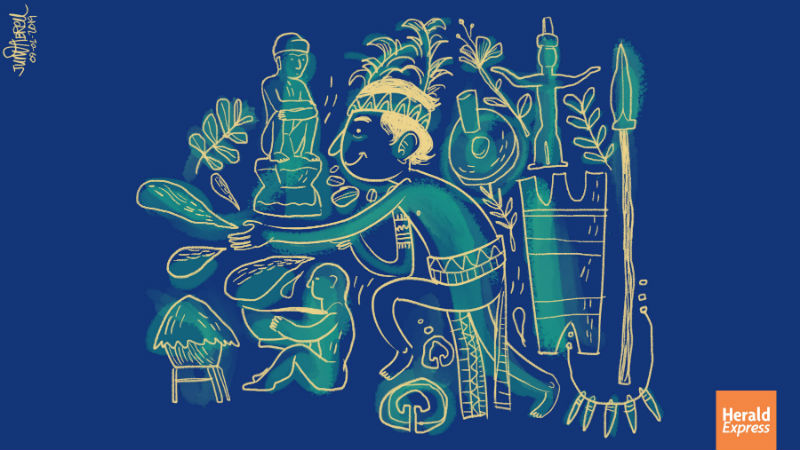For the benefit of private and government researchers, members of the academe, students and artists, here is a brief discussion on the policies and regulations governing documentation and utilization of indigenous knowledge systems and practices (IKSPs) and customary laws.
While it is self-explanatory, IKSP is defined by the National Commission on Indigenous Peoples (NCIP) Administrative Order No. 1 series of 2012, as, “…systems, institutions, mechanisms, and technologies comprising a unique body of knowledge evolved through time that embody patterns of relationships between and among peoples and between peoples, their lands and resource environment, including such spheres of relationships which may include social, political, cultural, economic, religious spheres, and which are the direct outcome of the indigenous peoples, responses to certain needs consisting of adaptive mechanisms which have allowed indigenous peoples to survive and thrive within their given socio-cultural and biophysical conditions.”
If these IKSPs entail documentation and/or utilization of the same, other than its intended purpose, may it be for public consumption and for commerce, free prior and informed consent (FPIC) is required. The requirement of FPIC is anchored on the basis of social justice wherein indigenous peoples (IPs), as the owners of IKSP, are entitled to be first informed of the documentation and utilization of their property (IKSP), and to give consent on whether to agree and/or reject the intended purpose of the IKSP.
IPs are the collective owners of IKSP
We should look at IKSP as the collective property of the IPs. In fact, this collective ownership of the IKSP by the IPs was underscored in the operating principles of NCIP AO 1 s. 2012. It mentions that the author, composer, inventor, writer, choreographer, arranger, lyricist, owner, first user, or preacher, is not one individual but all the members of the community who belong to the past, present and future generations.
If IKSP is collective ownership, the better part of prudence is to consult the IPs in their collectivity as single unit. Yes, this is a little bit tedious and burdensome wherein it presupposes the conduct of consultations involving the entirety of IPs dwelling inside an ancestral domain. But of course, this is the least of one’s concern if the same has a deeper appreciation of the wisdom behind the IP culture of collective ownership.
This appreciation is grounded on the recognition that IKSPs of IPs exist till this day because it is they, in their collective efforts, who have evolved, nurtured and protected the same despite centuries of subjugation. In fact, the very reason it is called IKSP is mainly because customs, knowledge, traditions which were being enjoyed and practiced during the pre-conquest era of the Philippines were conserved, collectively by the IPs, from the drastic changes from the popular and dominant culture introduced by our colonizers.
With that in mind, due FPIC is needed even if the one who will be documenting and utilizing the IKSP belongs or traces his/her roots to the IPs owning the same. Why? Well, because as discussed earlier, IKSPs are collectively owned. He/She, as a single individual, is just a part of the whole IKSP ownership.
Tedious and costly
For everybody’s information, the FPIC process being facilitated by the NCIP, has no budget allocation from the national government. This is why all expenses incidental to the conduct of the FPIC process are shouldered by the researcher. In effect, it is the researcher who will be paying for the food and transportation of the IP community elders/leaders and members who will attend meetings, conferences and other activities for the satisfaction of the FPIC. All other expenses incidental to the FPIC process will likewise be borne by the researcher.
The only payment that will be paid to NCIP is the filing fee of 500 pesos which will be directly transmitted to the National Treasury.
On the curious case of Whang-od relative to New Era
It is without any shade of doubt that the Kalinga Battok (Wha’tok) is classified as IKSP. Therefore, any move for its utilization beyond its traditional purpose, say for example, documentation, and/or appropriation for commerce, requires FPIC.
With that being said, one must first determine the owner of the IKSP. It is the owner who will be giving consent thereof. As a general rule, ownership of IKSPs is lodged with the community wherein as a collective body, they will decide whether or not they would allow or reject the utilization of the IKSP by a party for purposes outside its traditional intent.
Whang-od, as a single individual, cannot give consent in favor to another party for the utilization of the IKSP Battok considering that most of the designs therein are traditional. It is a different story, however, if those designs were originally conceptualized and/or crafted by her, wherein Whang-od may enjoy and hold ownership thereof. A better illustration of this is the Cordillera weaving industry. Narda’s Weaving cannot be compelled to undertake FPIC for the purpose of securing consent from the community. This because, Narda’s Weaving designs were originally conceptualized and crafted by Narda herself. Narda’s Weaving acquired inspiration from the traditional Cordillera designs but made a different design which is original to Narda’s Weaving.
By Rocky Ngalob














